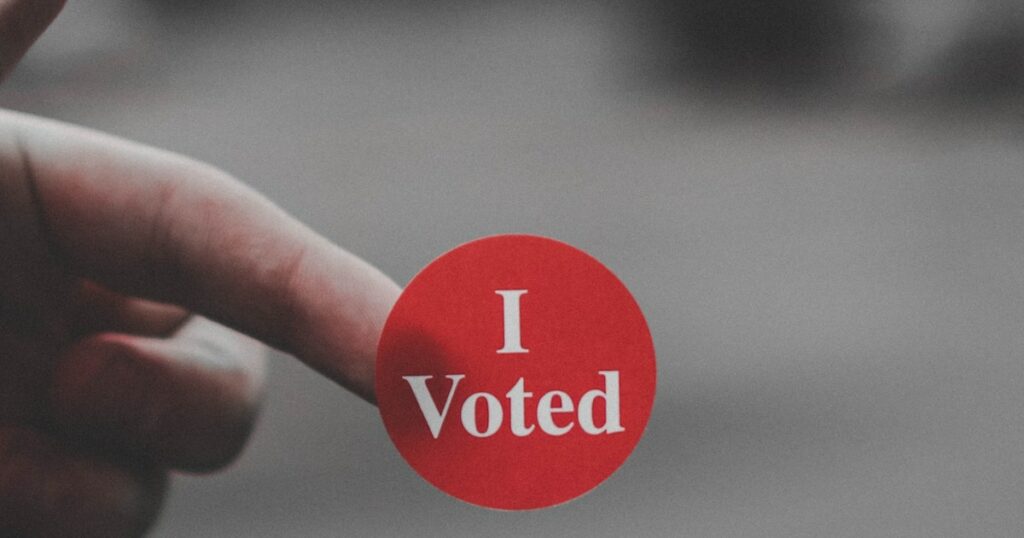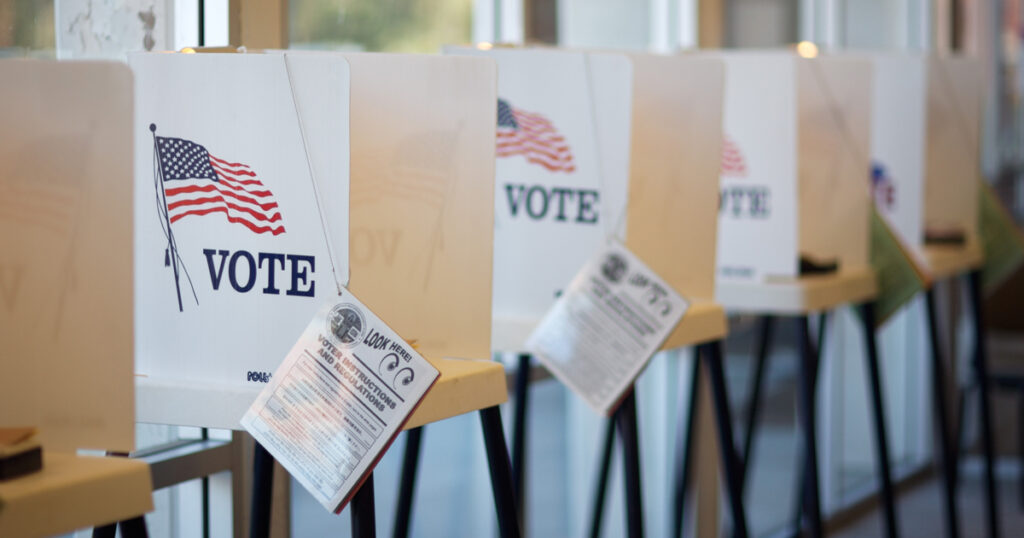Vocation means far more than “what I do for a living.” According to Luther, Christians have multiple vocations or callings. God calls us to live out our faith in the various estates that He has designed for human life. These estates are the household (including the family and its economic life), the church (the household of faith) and the state (the society and its government).
This means Christians have a vocation of citizenship. In the turmoil and controversies of an election year, we would do well to consider what that entails.
The Small Catechism includes a “Table of Duties,” giving “passages of Scripture for various holy orders.” For the Lutheran reformers, these “holy orders” included not only “bishops, pastors, and preachers” along with “hearers” (the estate of the church), but also wives and husbands, parents and children, youth, widows, “employers and supervisors” and “workers of all kinds” (the estate of the household). They also included “civil government” and “citizens” (the estate of the state).
In treating the vocation of citizenship, the Table of Duties gives the Biblical summary of “civil government” in Romans 13:1–4. The duties for “citizens” are given in five related Scriptures. Citizens are told to obey and to pray for the temporal authorities, to “submit to” and “be subject to” them.
St. Paul does not give rulers a license to abuse their God-given authority. They serve as God’s “servant” and “agent” since God, properly speaking, is the only intrinsic authority. Rulers are “to punish those who do wrong and to commend those who do right” (1 Peter 2:14); that is, they administer justice. Rulers protect their subjects so that they can “live peaceful and quiet lives” (1 Tim. 2:2).
Throughout history and throughout the world, most governments have involved “rulers” and “subjects.” The latter had no say in choosing their leaders or determining their laws. Those of us called to citizenship in the United States of America and in other democracies have an unusual vocation. The sovereign authority, according to the U.S. Constitution, is not a king or an emperor, but “We, the People.” Ordinary citizens choose their leaders, who answer to the voters. The government operates not by the dictate of “rulers,” but according to the “rule of law.” And on behalf of the people, elected representatives formulate that law.
Thus, American citizens have the vocation of both ruler and subject.
Yes, citizens must obey and submit to the governing authority, which is the law. This includes those who administer that law; they remain subject to the same law. Christians have a duty to honor and pray for their fellow citizens whom God has called to those vocations.
But by their voting, citizens in a constitutional republic direct their government’s domestic and foreign policies. They should educate themselves in current events, political debates and socio-economic issues.
Furthermore, according to the Lutheran doctrine of vocation, the purpose of every calling — pastors, husbands, wives, parents, children, employers, workers of all kinds — is to love and serve our neighbors. Thus, the Table of Duties has an additional category, “To Everyone,” which quotes, “Love your neighbor as yourself” (Rom. 13:9).
We carry out our citizenship and its tasks, such as voting, as a means of loving and serving our neighbors. When we vote, we advance the interests of our neighbors — our country, our fellow citizens, the “least of these” (Matt. 25:31–46). Opinions may vary about what that might entail. Since Scripture does not require any particular form of government, Christians may disagree with each other politically in those areas Scripture does not address.
Christians must also fight the temptation to give their temporal citizenship priority over their eternal citizenship. St. Paul, a Roman citizen, took full advantage of the rights and privileges that gave him (Acts 22). At the same time, his full allegiance was elsewhere: “Our citizenship is in heaven, and from it we await a Savior, the Lord Jesus Christ” (Phil. 3:20).






Put not your trust in princes,
in a son of man, in whom there is no salvation.
Blessed is he whose help is the God of Jacob,
whose hope is in the Lord his God,
who made heaven and earth.
Psalm 146: 3,5-6a